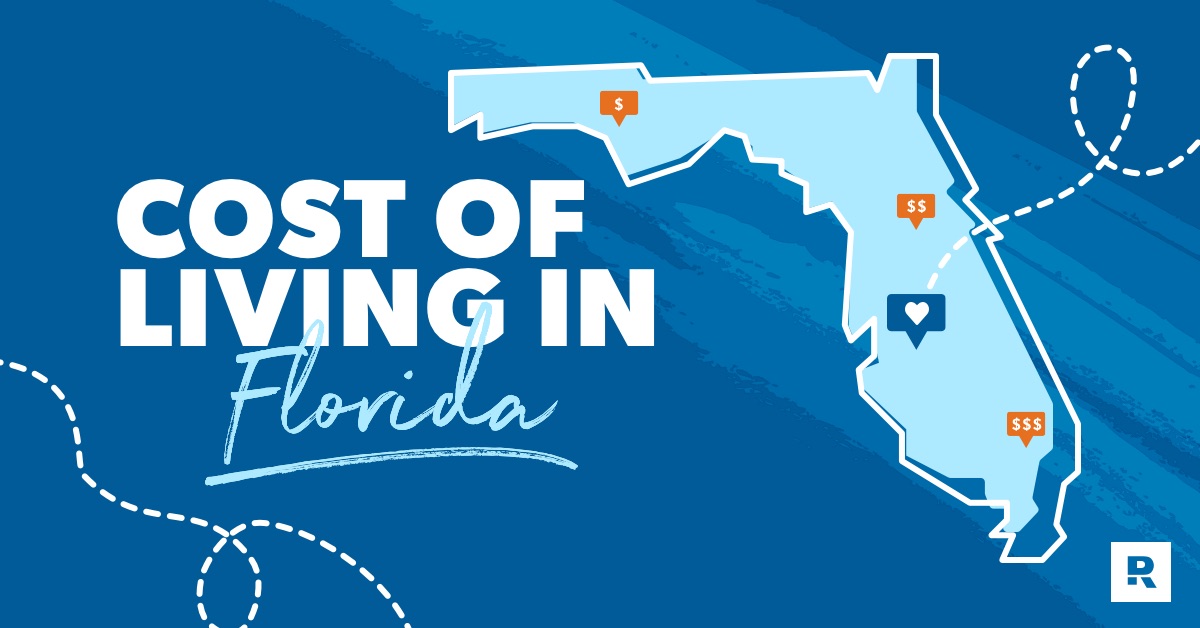Florida, often called the Sunshine State, is renowned for its beautiful beaches, vibrant culture, and favorable climate. As one of the most populous states in the United States, it attracts residents and tourists alike with its diverse attractions and opportunities. However, with its many advantages come considerations regarding the cost of living. In this article, we’ll delve into the various aspects contributing to the cost of living in Florida in 2024.
Housing Market Trends
One of the primary factors influencing the cost of living in Florida is its housing market. In recent years, Florida has experienced significant growth in its real estate sector, leading to both opportunities and challenges for residents. The demand for housing, particularly in metropolitan areas such as Miami, Orlando, and Tampa, has driven up prices.

As of 2024, the median home price in Florida stands at approximately $340,000, with variations depending on the specific location within the state. Renting is also a popular option, with median rents hovering around $1,500 per month for a one-bedroom apartment in urban centers.
Utilities and Transportation Costs
Housing, utilities, and transportation are essential components of the cost of living. For a typical household, utility costs in Florida, including electricity, heating, cooling, water, and garbage, average around $150 to $250 per month.
Transportation costs vary based on commute distance, vehicle ownership, and public transportation usage. Owning a car entails expenses like fuel, insurance, maintenance, and registration fees. Alternatively, public transit options such as buses, trains, and ridesharing services offer more affordable alternatives in urban areas.
Healthcare Expenses
Healthcare is another significant consideration when assessing the cost of living. Florida boasts a robust healthcare system with numerous hospitals, clinics, and medical professionals. However, healthcare costs can vary widely based on insurance coverage, the required services, and the individual’s health status.
On average, a single person in Florida can expect to spend around $400 to $600 monthly on health insurance premiums. Out-of-pocket expenses for medical services, prescriptions, and deductibles also contribute to overall healthcare costs.
Food and Groceries
Food prices and grocery expenses contribute to the overall cost of living. Florida benefits from its agricultural resources, providing residents with access to fresh produce, seafood, and various culinary options. However, the cost of groceries can fluctuate based on market conditions, seasonal availability, and consumer demand.
A typical household in Florida spends approximately $300 to $500 per month on groceries, depending on dietary preferences, family size, and shopping habits. Eating out at restaurants and cafes is also popular, with meal prices varying widely based on the establishment and location.
Education and Childcare
For families with children, education and childcare expenses are significant considerations. Florida offers a range of public, private, and charter schools and higher education institutions such as colleges and universities. The cost of education can vary based on factors like school quality, tuition rates, and extracurricular activities.
Childcare costs, including daycare, preschool, and after-school programs, also contribute to family expenses. On average, childcare expenses in Florida range from $800 to $1,200 per month per child, depending on the type of care and location.
Taxes and Other Financial Considerations
Taxation is an essential aspect of the cost of living in Florida. The state has no personal income tax, making it attractive for individuals and families seeking tax-friendly environments. However, property, sales, and other levies may apply, impacting overall financial planning.
Other financial considerations include insurance premiums, retirement savings, and discretionary spending on entertainment, travel, and leisure activities. Budgeting and financial management play crucial roles in maintaining a comfortable standard of living in Florida.
Conclusion
In conclusion, the cost of living in Florida in 2024 encompasses various factors, including housing market trends, utilities, transportation, healthcare expenses, food and groceries, education, childcare, taxes, and other financial considerations. While Florida offers numerous advantages, such as a favorable climate, cultural diversity, and recreational opportunities, residents should carefully evaluate and plan for the associated costs to ensure financial stability and well-being. Understanding these aspects allows individuals and families to make informed decisions and effectively manage their budgets in the Sunshine State.
See Also:
- Consequences of Abandoning Your Mobile Home Without Paying Lot Rent
- Can You Use a Mobile Home as Collateral for a Loan?
- Understanding the Importance of Income Verification in Sarasota, Florida Mobile Home Parks
- Why You Should Get an Inspection on Your Sarasota, Florida Mobile Home Before Buying
- How Can You Buy a Sarasota, Florida Mobile Home Online

